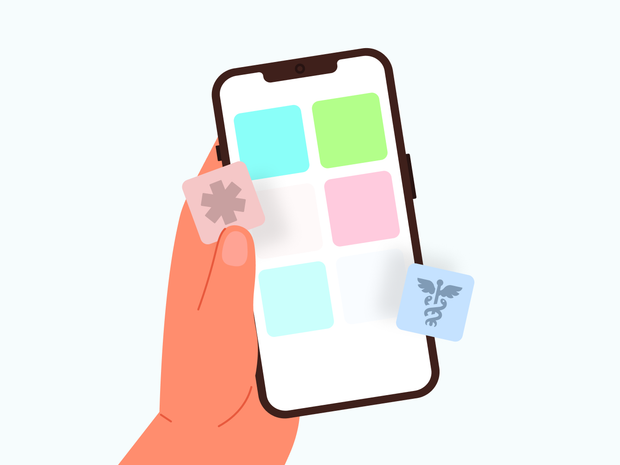Learning all that content in medical school is a bit like trying to drink from a fire hose. There’s a raging torrent of information, and somehow you need to get it all into your head, all while attending labs, submitting assignments, and, you know, still having to tend to your basic needs for food, sleep, and hygiene.
I mean, when last did you do the laundry?
Med school is tough—and it should be. But one of the best ways to get crucial daily studying done is to repurpose all that “in-between” time in your day. Just think about it: if you used the time waiting for the bus (10 minutes), commuting (40 minutes), between lectures (15 minutes), and waiting for your partner to get ready (84 years), you’d find that by the end of the day, you’ve got a good chunk of your work done!
And the best way to capitalize on all that squandered time? These top apps for med students!
What Are The Best Apps For Studying in Medical School?
If you're looking for a little "secret sauce" to supercharge your efficiency, access to knowledge, and organization, then check out these top apps for med students. Some of them not only contain extensive medical school content for quick reference, but others, like Brainscape, have been engineered to help you study twice as efficiently as any other study tool or technique!
Top Med School App # 1: Brainscape
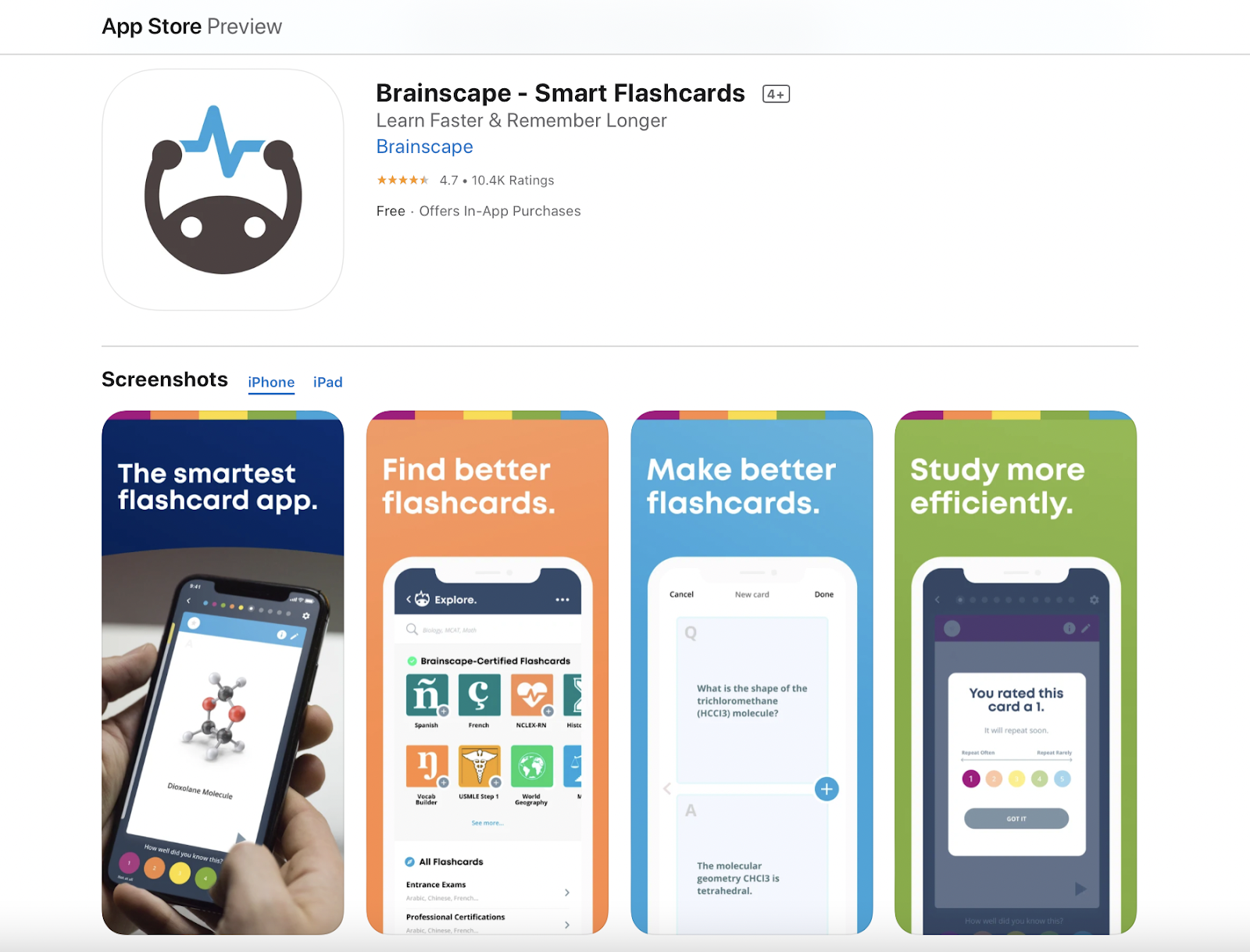
Brainscape is a flashcard-based web and mobile app for serious learners who need to learn, understand, and memorize large amounts of information and fast. It has a vast collection of medical flashcards, created by other top students and educators, for hundreds of popular subject areas in the field of medicine and healthcare.
It also has certified collections of expert-curated and vetted flashcards for the MCAT, USMLE, NCLEX, EMT, Paramedic, and more. Here's an example of the question (left) and answer (right) side of a mobile flashcard from the NREMT-Paramedic class ...
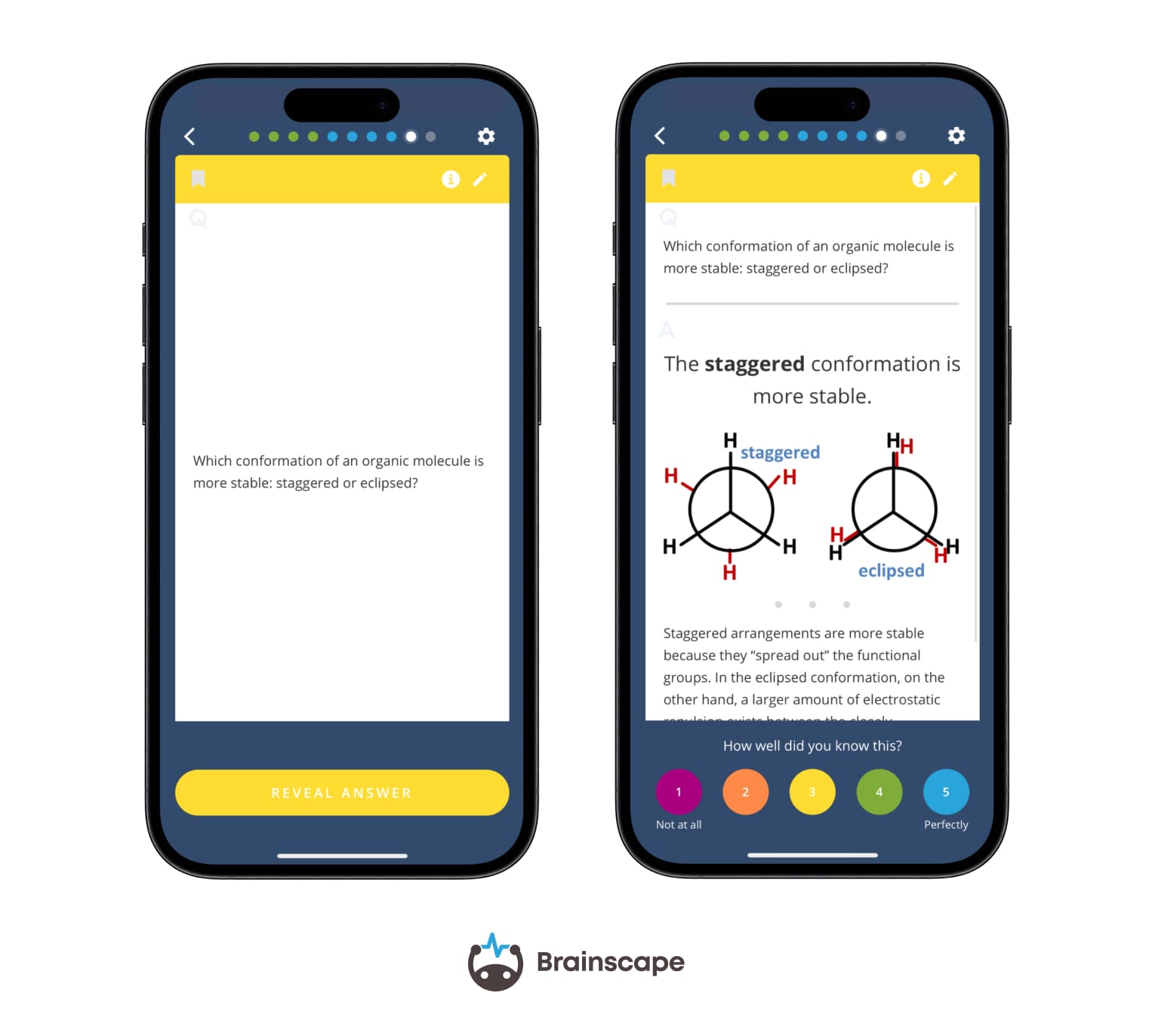
So, what makes Brainscape different from other flashcard apps?
- It has a far more sophisticated spaced repetition algorithm, which automates the intervals at which you revisit new information at the perfect pace for your unique needs.
- It offers detailed learning analytics so that you know exactly how far you've progressed and how far you still have until mastery of a topic is reached.
- Brainscape has flexible content formats, allowing you to make (and learn) flashcards with multimedia and different kinds of text, i.e., much more than just "vocab words".
- It enables you to make your own flashcards on Brainscape's website and sync them to the Brainscape mobile app.
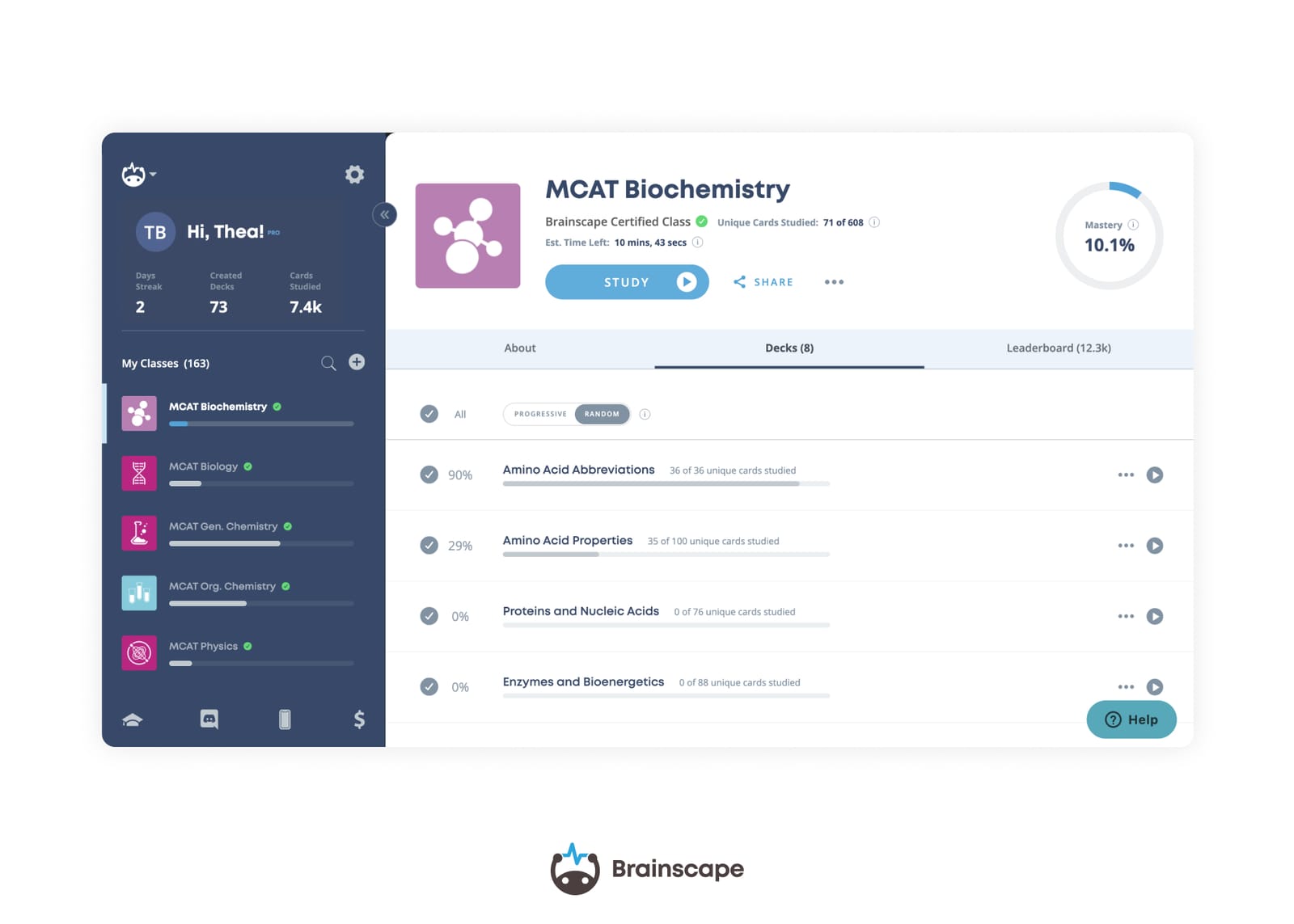
And finally, Brainscape is free for most features, while complete content access can be unlocked for a modest subscription fee that is a fraction of most other medical content repositories.
Top Med School App # 2: Anki
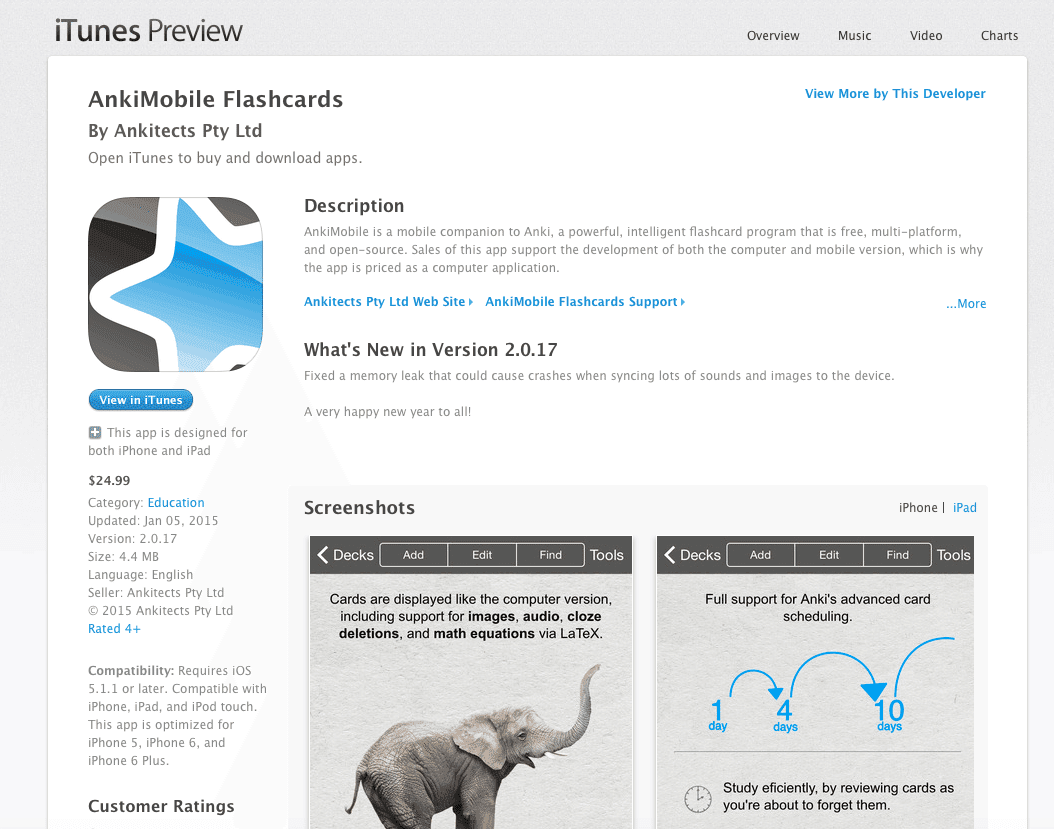
Anki is another popular adaptive flashcard app used by many med students. While its design might not be quite as slick as Brainscape and Quizlet, its software is "open source", meaning it is developed by the public community and not controlled by an evil corporation (mooo-ha-ha-ha!). It is also free to use online (at the time of writing), although the mobile app costs $25.
Because Anki does not have official partnerships with publishers or content experts, you can't really know if you can trust the quality, comprehensiveness, and accuracy of the flashcards you find in its marketplace. So, it's best to remember this as you look for other people's flashcards to study.
Top Med School App # 3: Quizlet
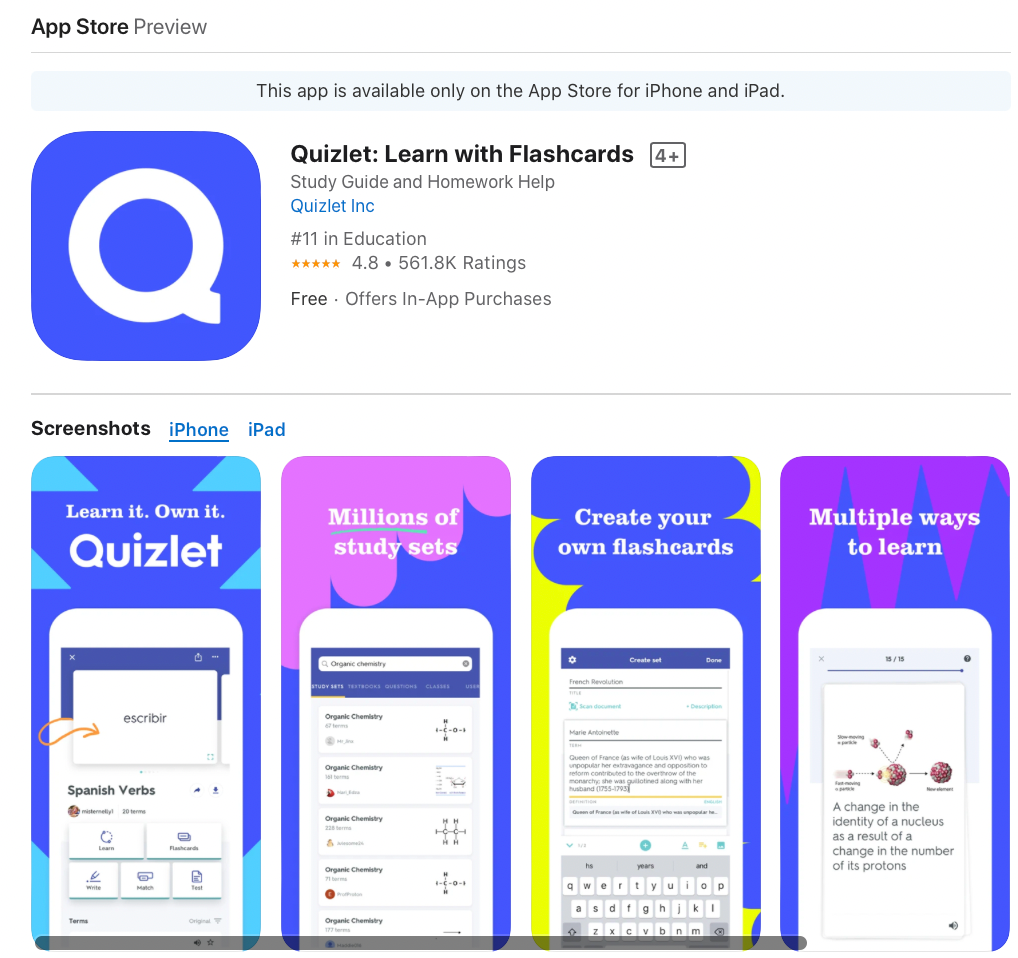
Quizlet is also a very popular flashcard app with pre-created card decks on topics like medical terminology, conditions, and abbreviations. There’s a huge range of user-created flashcards in Quizlet's marketplace, and you can also make your own.
Most of the content in Quizlet is user-generated and in the form of independent "study sets", rather than a complete progressive curriculum (like you might find in Brainscape). Because of this, it could take you a ton of time and research to compile the best and most accurate user-generated study sets for the goal you are shooting for, and there might be a lot of overlap between the different users' content that you combine together.
But, at least it's fun! Quizlet gamifies its learning experience, turning medical content into scoreable games. For some, this may be fun, but serious learners tend to prefer the hyper-efficient and clean-cut approach Brainscape takes to learning. The bottom line is if you are looking to make your medical vocab studying more fun, Quizlet may be the app for you. If you are looking for a more effective study app that will help you master medical content in less time, go with Brainscape.
Now, let's turn our attention to the best medical apps for healthcare professionals on the job!
What Are The Best Medical Apps for Learning & Practicing Medicine?
The apps below have been created both for medical students and qualified physicians. They’re great as references, networks, and information storehouses.
Top Medical App # 4: MDCalc Medical Calculator
Being a doctor requires you to be fluent in a spectrum of formulas and equations, which is where MDCalc can make life a whole lot easier. The app contains 500+ medical formulas you’ll need for making good decisions and recommendations for patient care in the clinical environment. From pregnancy wheels, dermatome maps, and dosage calculators to eye charts and growth velocity, MDCalc is the go-to clinical decision tool for 35+ medical specialties.
For study purposes, MDCalc gives a summary of why each formula and calculator is important and how/why it’s used, as well as links to reference articles and studies to help support your understanding and decision-making.
Top Medical App # 5: Prognosis
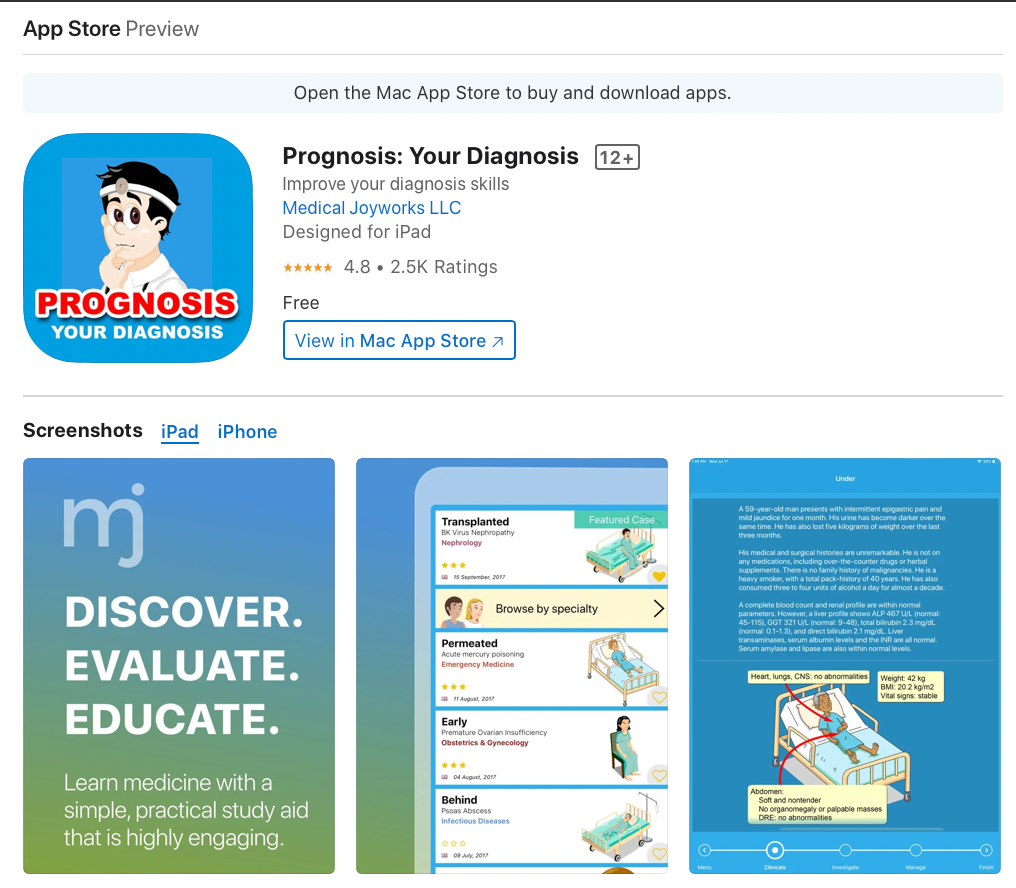
Prognosis is a tool for practicing your diagnostic and decision-making skills, using real clinical cases submitted by 200 physicians spanning 33 specialties. Within the app, users can select a case, make their diagnosis, and then check it against the official peer-reviewed diagnosis. The case information provided includes diagnostic reasoning, test results, and key learning points, allowing users the opportunity to learn valuable lessons from each case.
Prognosis is a particularly useful app for getting to grips with different disease groups and their treatment. New cases are released every week, based on real-world clinical experiences.
Top Medical App # 6: Human Anatomy Atlas
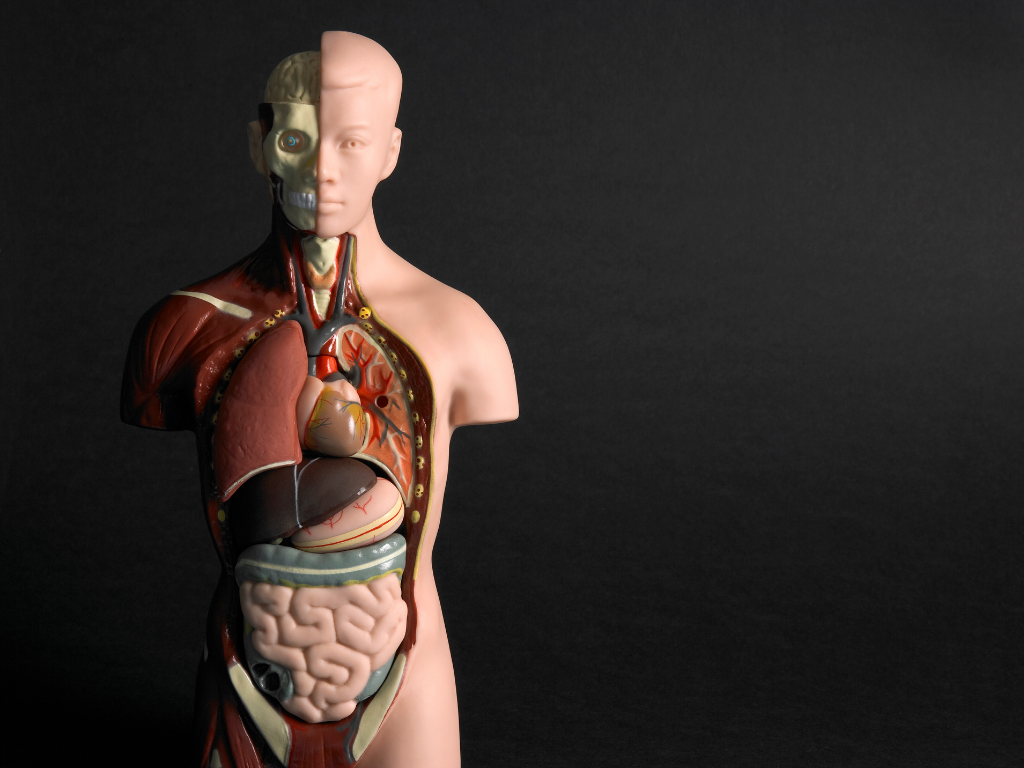
The Human Anatomy Atlas offers thousands of models to help you understand how the human body works and the names of its myriad muscles, bones, arteries, organs, and more. Used by both medical students and professionals, this medical app includes textbook-level terminology, as well as dissection models, microanatomy, and animations. It’s a great study reference for pre-med and medical students, and a lot lighter to haul around with you than an anatomy textbook!
Top Medical App # 7: Epocrates
A key requirement for passing medical school and practicing safe medicine is understanding drug interactions. There are literally thousands of drugs on the market, so this is not easy ... but that’s where Epocrates comes in.
The free version of Epocrates centers on pharmacology and features a powerful drug interaction checker. You can check for harmful interactions between up to 30 brands, generic, OTC, or alternative drugs at a time. There’s also a mystery pill identifier, with pills organized by shape, color, and imprint code. Then there are 600+ dosing calculators, medical equations, and other useful tools.
The professional version of Epocrates includes disease information, infectious disease treatment, laboratory panels, and support for alternative medicines. All in all, this app is a great reference for pharmacology and good prescription practice.
Top Medical App # 8: Medscape
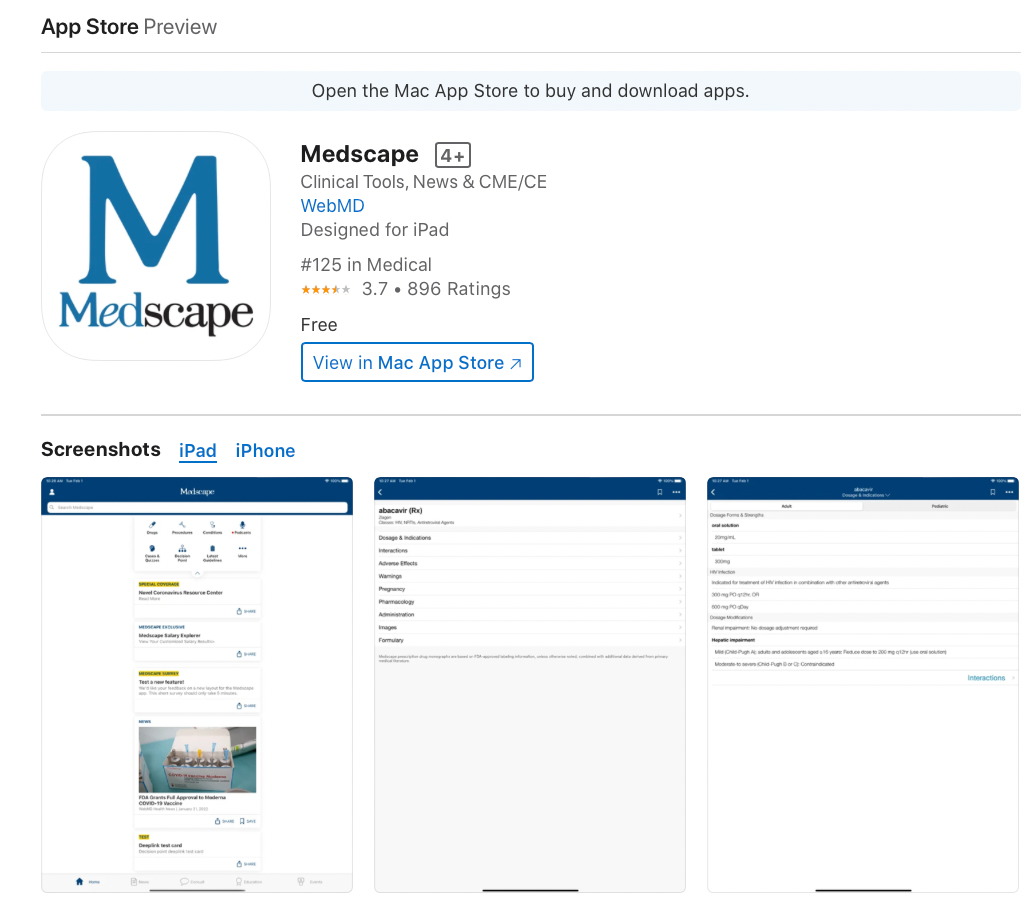
This is one of the most popular medical apps on the market. Medscape features a tailored newsfeed with the latest medical news and expert commentary in various specialties. There’s information on the hot-off-the-press FDA approvals, conference updates, new clinical trial data, and more.
The “consult” section has a huge network of physicians and med students where you can read new case histories and keep up with current medical thought. Medscape also contains 400+ medical calculators, a drug interaction checker, pill identifier, and step-by-step procedural videos.
What Is The Best App for Productivity & Time Management?
Being in medical school means having an enormous number of things to do, every day, for several years. So it’s hardly surprising that so many students get overwhelmed and exhausted by the workload. The productivity and time management app below will help you manage your task list in a way that makes it feel doable!
Top Healthcare Management App # 9: Todoist
Todoist is used by 25 million people to organize, plan, and collaborate their daily task list. You can use this app to keep your achievements top-of-mind with a widget that shows your current progress toward daily and weekly goals.
You can quickly create reminders for repetitive tasks, and order your list in terms of importance. Todoist is particularly good at breaking large amorphous tasks into small, bite-sized pieces, which is the key to building momentum and winning each day.
What Are The Best Apps for Improving Mindset?
High achievement is a mental game, as well as a physical one. Unless you learn how to unwind, let go, and relax, you’ll never be able to summon peak performance from yourself at will. The apps below will help you with the flipside of hard work: making sure you’re able to unplug your brain and get restorative rest.
Top Med App # 10: Headspace
Get happy. Be less stressed. Sleep soundly. Founded by a former Buddhist monk with a degree in circus arts, Headspace is a vast store of guided meditations and mindfulness exercises, tackling key problem areas like sleep, waking up, working out, focusing, relaxing, and more.
Many world-class athletes, scholars, CEOs, medical students, and healthcare professionals use meditation and mindfulness skills to perform at their highest level and enjoy the process.
Top Med App # 11: Calm
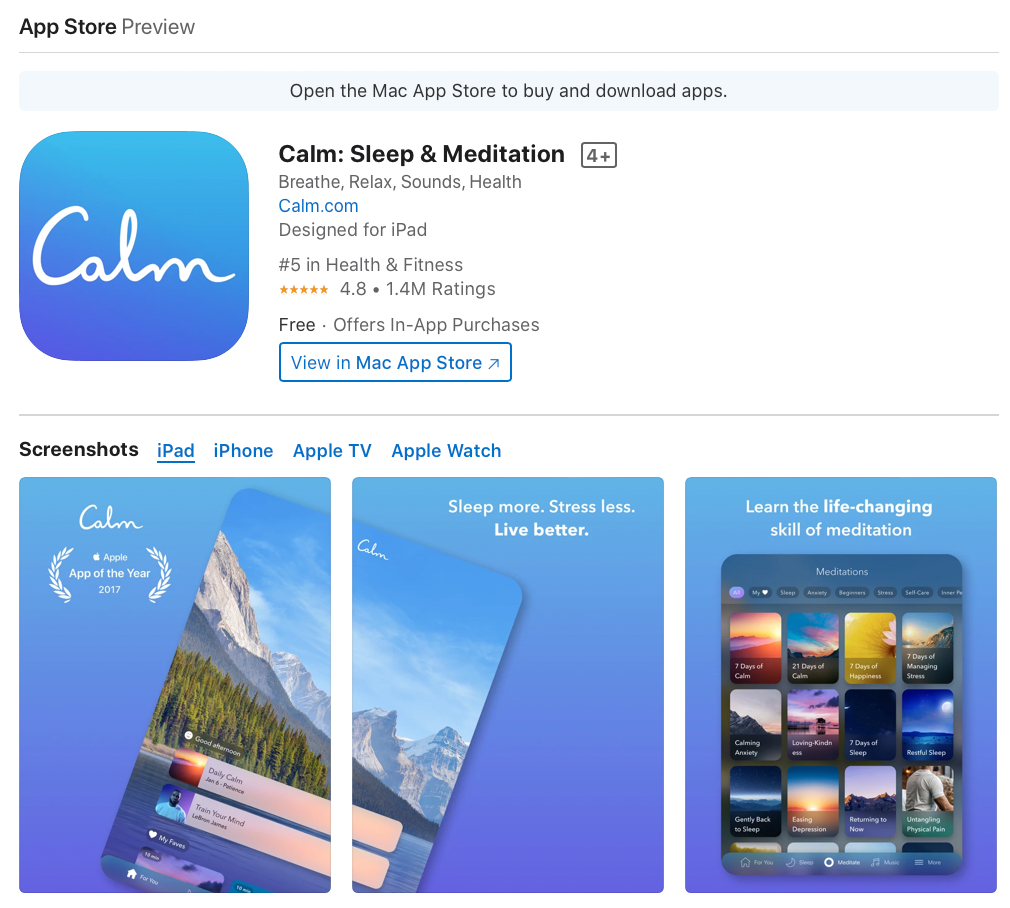
Calm is a hugely popular app for sleep, meditation, and relaxation. Sleep is essential for clear thought, decisive action, memory retention, and cognition—especially during times of high stress and study—all of which are crucial for medical students and practicing healthcare professionals.
This app contains guided meditations, sleep stories read by various celebrities, breathing programs, stretching exercises, and relaxation soundscapes.
Top Med App # 12: Forest
We all know phones are addictive, distracting, and a great way to derail your study time. The Forest app is a similarly addictive (in a good way) method to help you beat phone addiction and overcome distraction, which is especially helpful if you have an important medical exam coming up!
The app rewards you for leaving your phone alone, allowing you to stay focused on more important tasks, like studying. Forest also tracks your focused moments, helping you build good habits and exercise your willpower, which you can then use to beat procrastination and get the necessary work done for medical school.
There you have it: 12 study, medical, and organization apps that will help you survive and even thrive throughout your years at medical school and as a practicing physician.
The world needs good doctors. While the road is long and littered with seemingly insurmountable obstacles, a combination of daily study habits, self-care, determination, and smart study apps like Brainscape will give you the ultimate study weapon to crush your exams!
